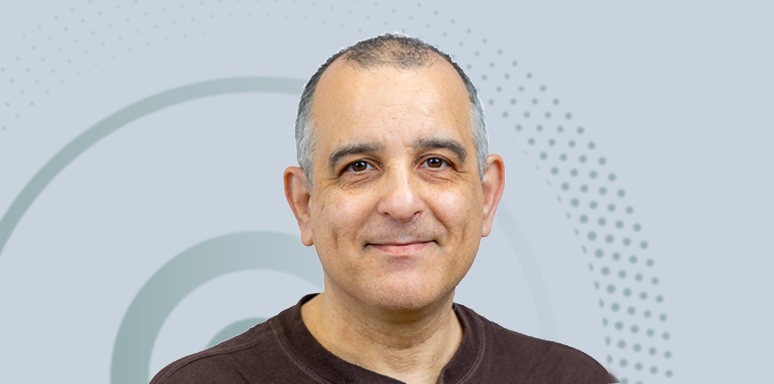Two papers by Prof. Amir Leshem’s research group accepted to prestigious conferences

Both papers tackle the issue of communication networks, but from different angles: One offers a scheme that identifies malicious web agents, and the other explores how peer pressure affects opinion-forming in online discussion groups.
Prof. Amir Leshem teaches and researches at the electrical engineering department at Bar-Ilan. His research group simultaneously studies information processing, signal processing, and communication networks. Over the years, Prof. Leshem specialized in a variety of areas, including co-learning, signal processing for social networks and opinion dynamics, multiplayer learning over wireless networks, cellular communications technologies, signal processing in sensor networks, signal processing for astronomic radio imaging, statistical theory, network attack detection, and recreation of linear dynamics online. Now, two papers by his research group were accepted to prestigious conferences, and both tackle the issue of networks, but from different angles. “Dynamics in social networks can have an effect on countless fields, from genetic research to counterterrorism,” says Prof. Leshem.
PhD student Or Shalom presented a paper at ICASSP 2024, the flagship conference of the Signal Processing Society, held this year in Seoul, South Korea. Shalom’s paper, titled ‘Mitigating Data Injection Attacks on Federated Learning,’ offers a novel scheme that detects and removes malicious agents participating in the network. “We show that our mitigation scheme can be performed locally by the coordinating node without compromising the agents’ privacy.” Explains Shalom. The research was co-conducted with Prof. Waheed Bajwa from Rutgers University.
MSc student Shir Mamia will be presenting her paper at the Graph Signal Processing 2024 workshop, to be held this June in TU Delft, in Holland. “The paper, titled ‘Incorporating the Spiral of Silence into Opinion Dynamics,’ explores how peer pressure impacts opinion formation within networked discussion groups, and enhances classical models by considering the influence dynamics during group discussions,” shares Mamia. It is a joint research with Prof. Moran Yarchi, Dr. Tsahi Hayat and Dr. Dana Markowitz-Elfassi of Raichman University, with the support of the Israeli Ministry of Science and Technology.
Prof. Leshem himself won the SPARC grant for his work in the field of multi-agent AI, for sensing and controlled communications. SPARC is a grant offered by the Indian government for international collaborations. It was awarded to Prof. Leshem for his joint work with Prof. Zafaruddin S.M. of BITS Pilani, and collaborations with Prof. Manjesh Kumar Hanawal, Associate Professor at IIT Bombay, and Prof. Vikram Krishnamurthy, ECE, at Cornell University.
Last Updated Date : 28/05/2024



